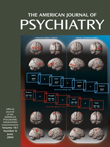To the Editor: In our recent review article on chronic fatigue syndrome, we concluded that it is a complex disorder with a possibly heterogeneous etiology. To date, no single cause for chronic fatigue syndrome, whether a virus or a significant psychological event, has been identified. However, the bulk of scientific studies over the last two decades have identified a host of pathophysiological abnormalities across many domains. Although the role and significance of each of these abnormalities in predisposing to the illness, directly causing the symptoms, or occurring because of the condition are unclear, Dr. Berger’s suggestion that psychological factors are the single cause of chronic fatigue syndrome and other functional somatic syndromes is rather simplistic. In fact, Wessely, a key figure in drafting the Report of the Joint Committee of the Royal Colleges of Physicians, Psychiatrists, and General Practitioners (1997), specified that “chronic fatigue syndrome cannot be considered either ‘physical’ or ‘psychological’” and has continuously argued for a biopsychosocial approach to the illness
(1). Additionally, several mechanisms, including the central and neuroendocrine nervous systems, have been identified in functional somatic syndromes in general
(2) and fibromyalgia specifically
(3). Thus, an understanding of the etiology of functional somatic syndromes and fibromyalgia is far from unanimous, and the issue of psychological factors as the single cause for these syndromes has not been settled, as asserted by Dr. Berger.
Perhaps the need to simplify these complex and multifactorial conditions stems from a dualistic world view in which the biomedical and psychosocial models of illness are separate. However, a broader perspective would acknowledge the interdependence of mind and body and offer empirical explanations for chronic fatigue syndrome and related conditions. A psychodynamic perspective may provide interesting and potentially credible explanations; unfortunately, little empirical work has been done to move these explanations from the level of opinion to the level of data or evidence-based medicine. Alternately, understanding the heritability (i.e., genetic and environmental influences) of a trait or condition—be it breast cancer, major depression, personality, or pain and fatigue—can have practical implications for the early detection of cases, risk assessment, and delivery of preventative interventions.
Finally, Dr. Berger takes issue with our description of patient advocacy and self-help groups. It is undeniable that patient support groups play an important role in providing information as well as offering support to patients and family members. The aim of most support groups is eventual recovery and not supporting the “sick victim” role, yet support is not always unbiased. This may be especially true in the case of chronic fatigue syndrome, where groups have generally formed against the backdrop of a historically negative patient-doctor relationship. Indeed, it is an artful and well-informed physician who can work with the patient as an active member of the treatment team, teach patients about evidence-based medicine, and provide empowering explanations about the symptoms and illness
(4). In sum, advances in the treatment and management of chronic fatigue syndrome must be based on careful and interdisciplinary research as well as providers and patients working together as a team.

